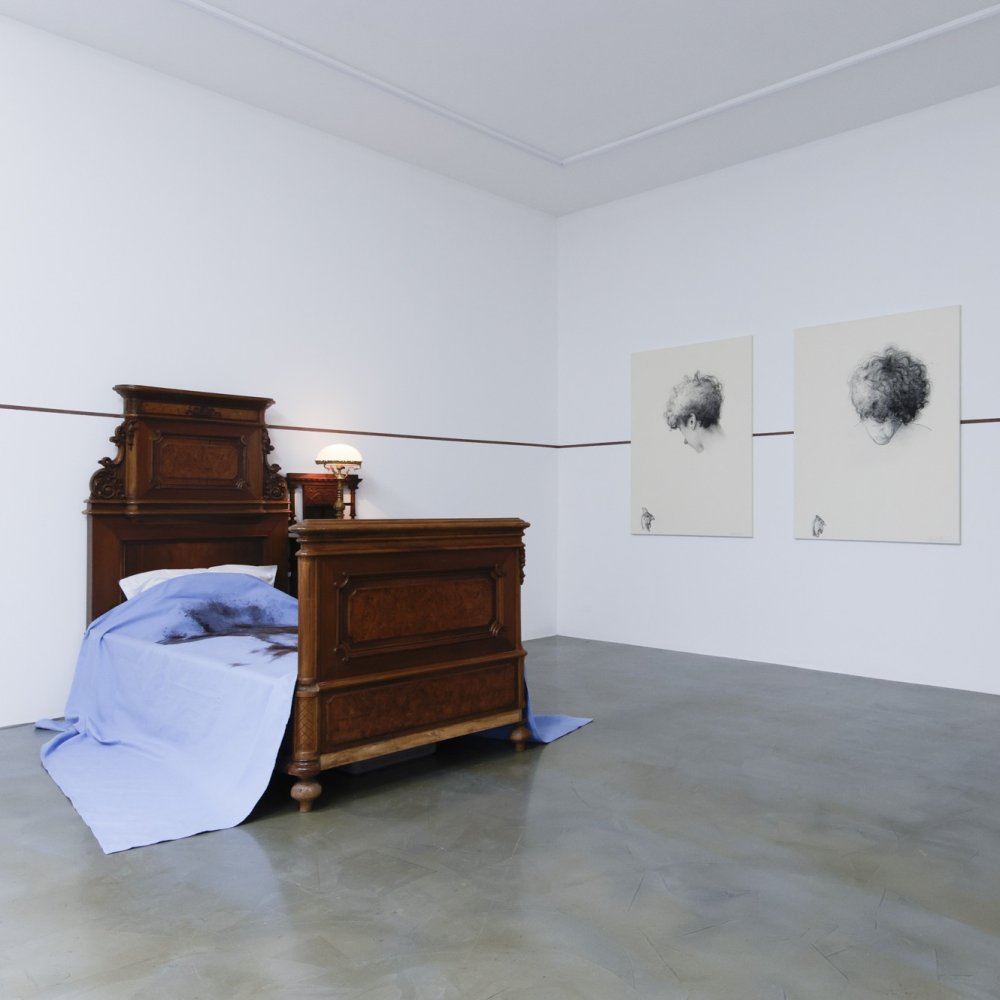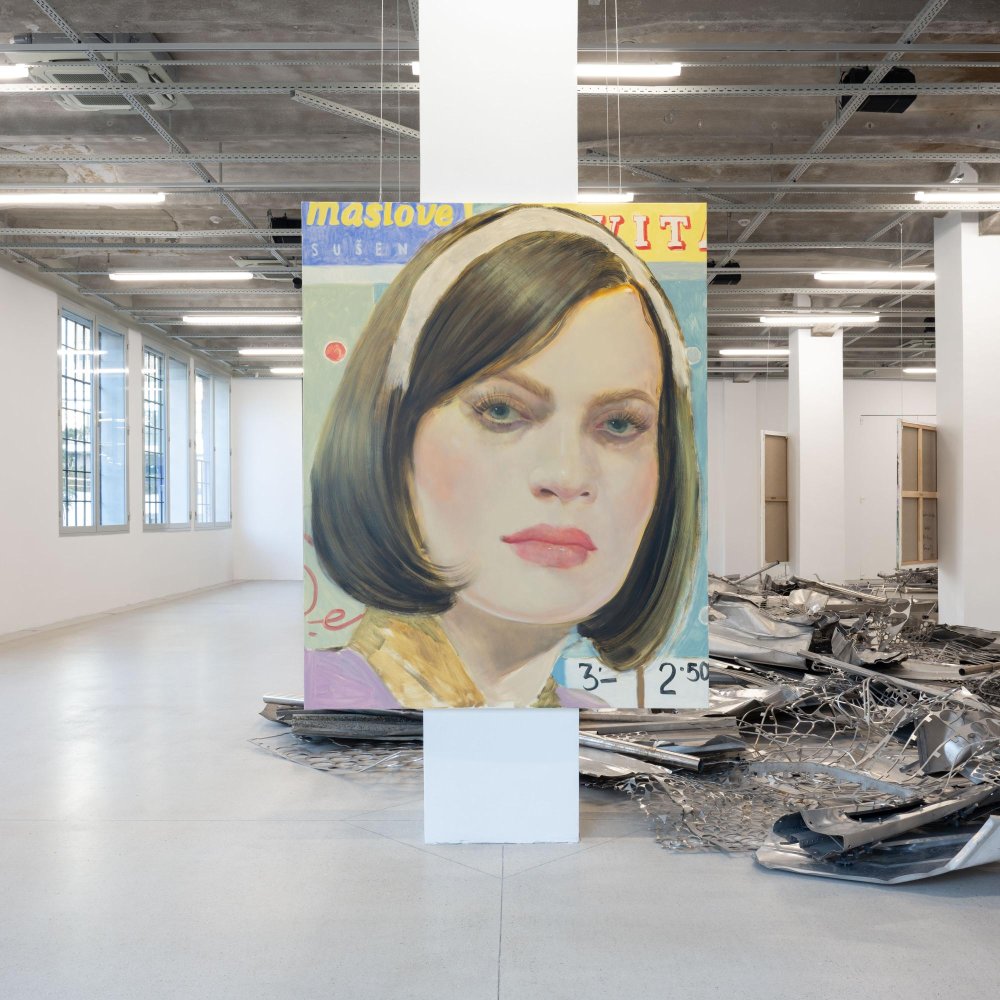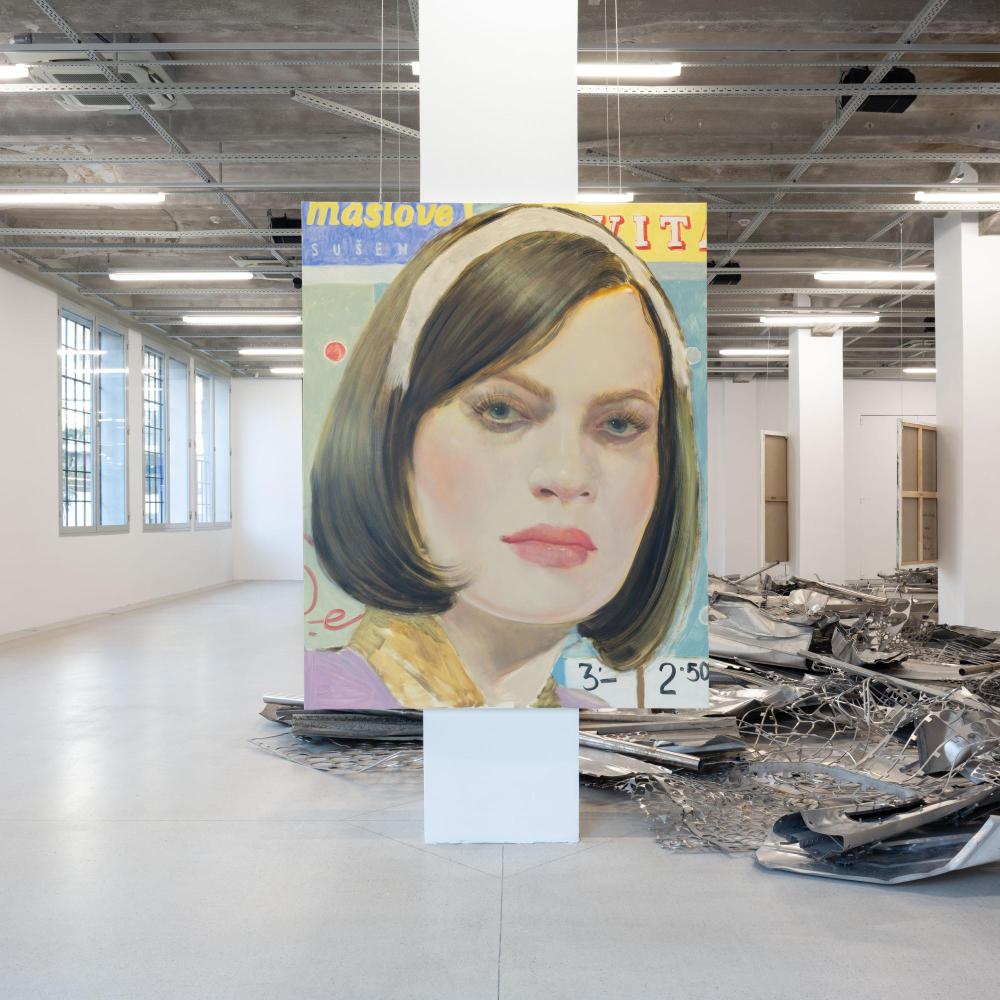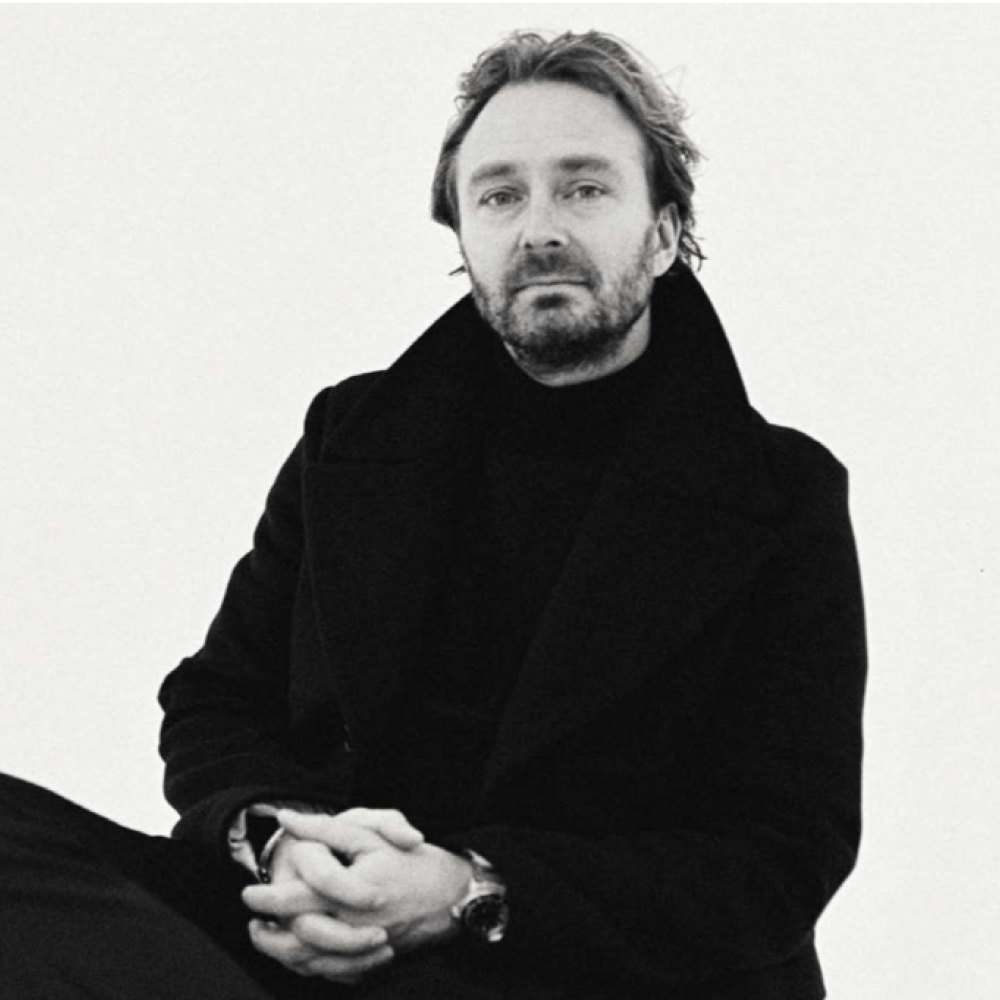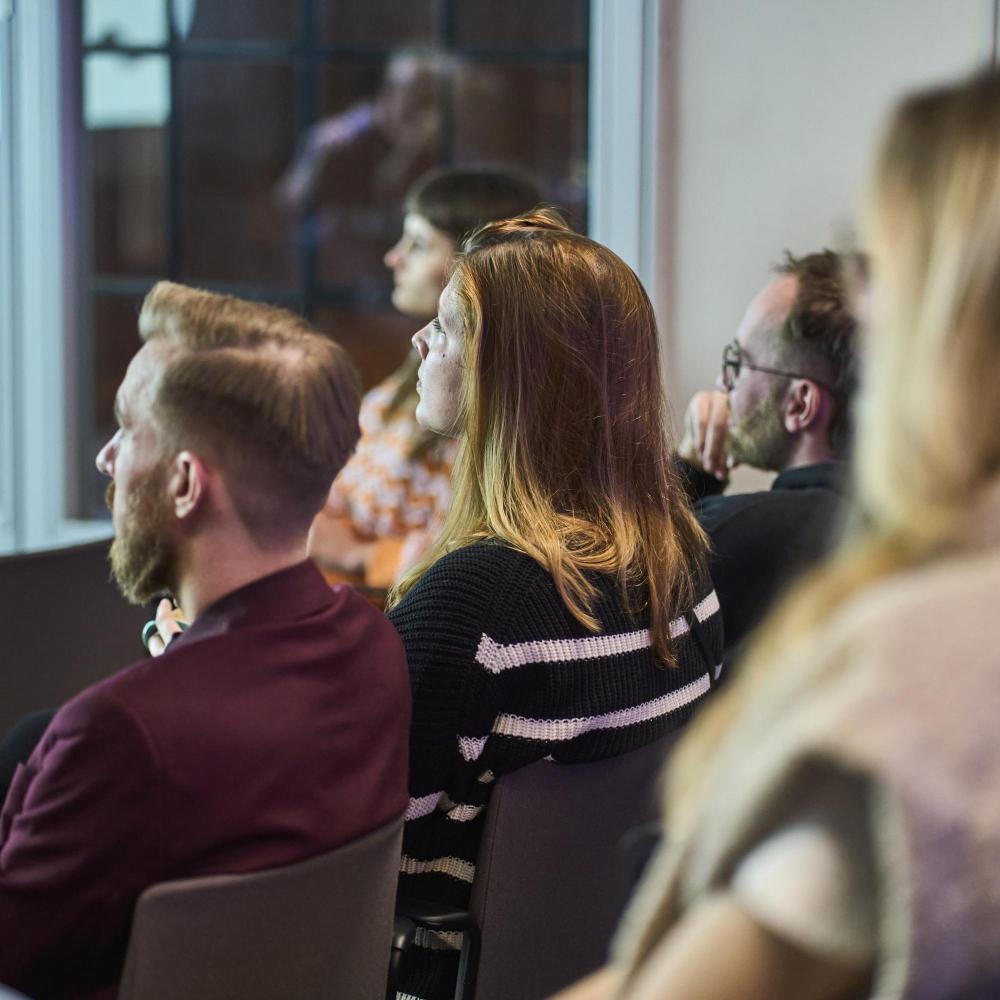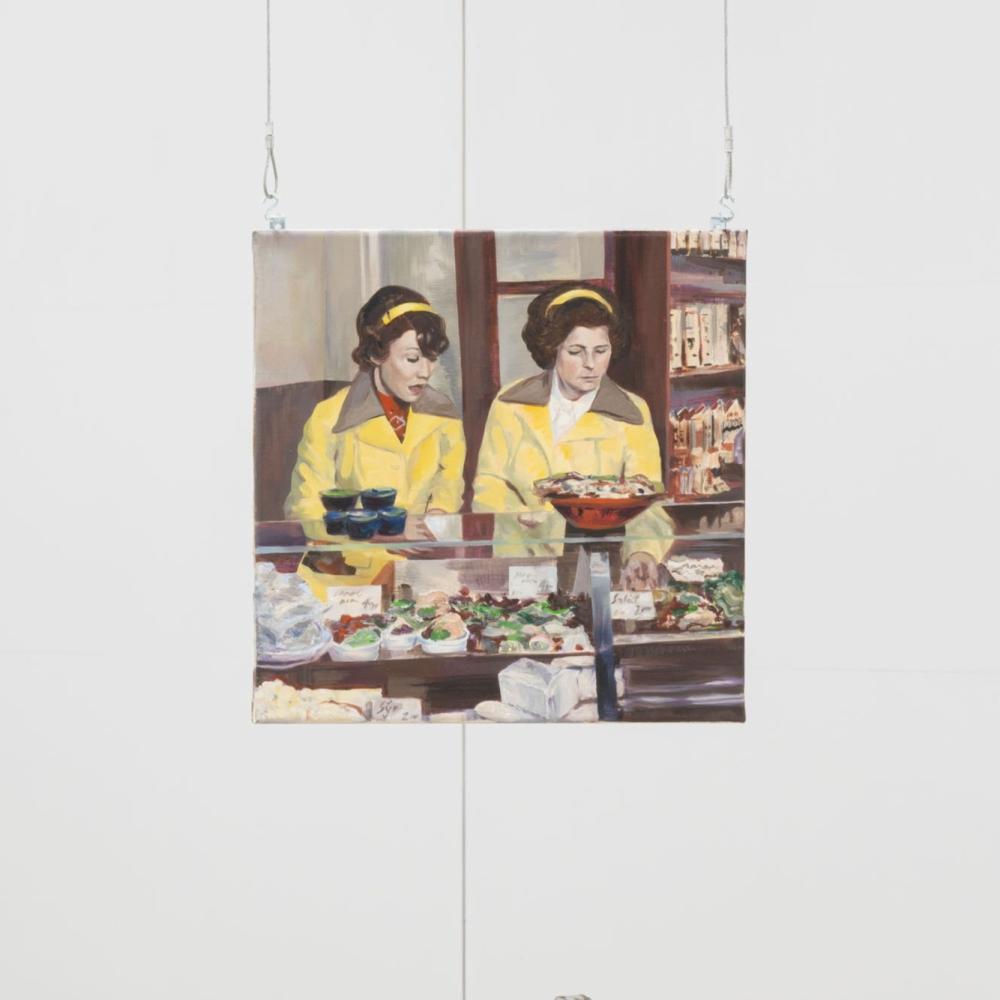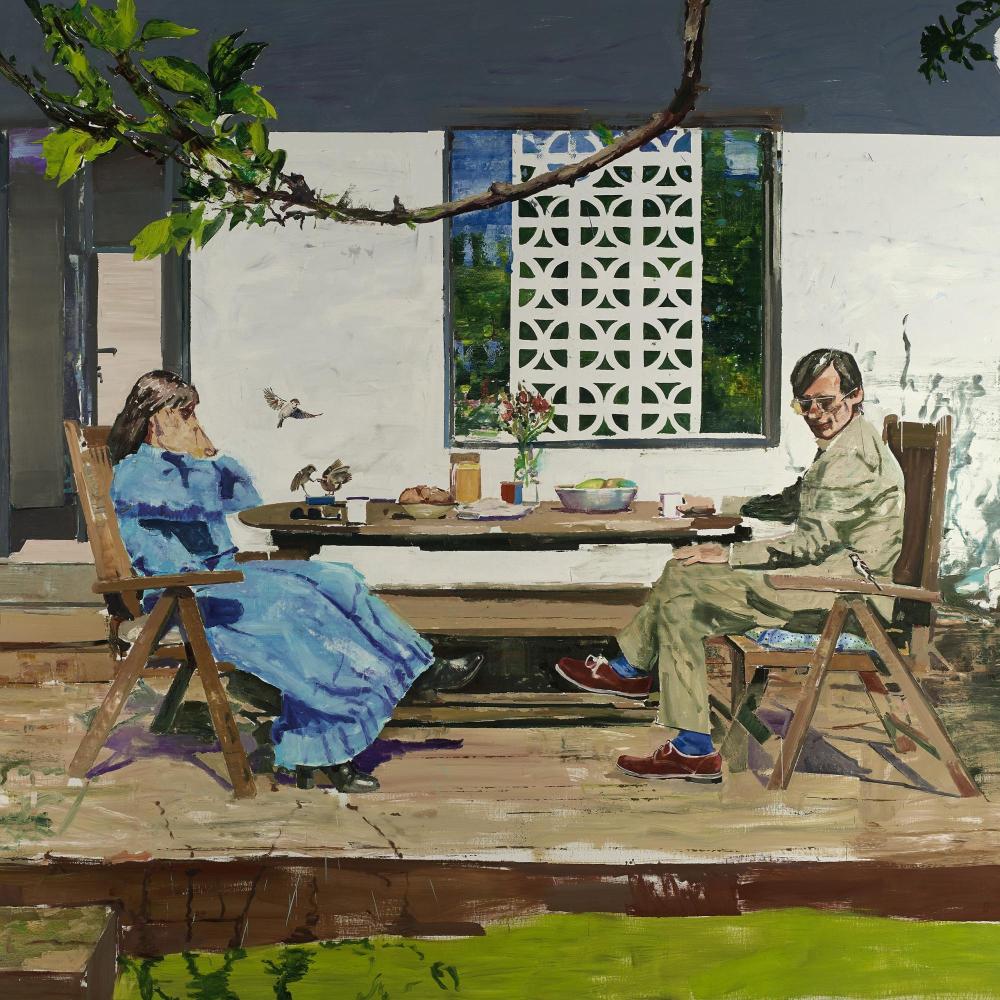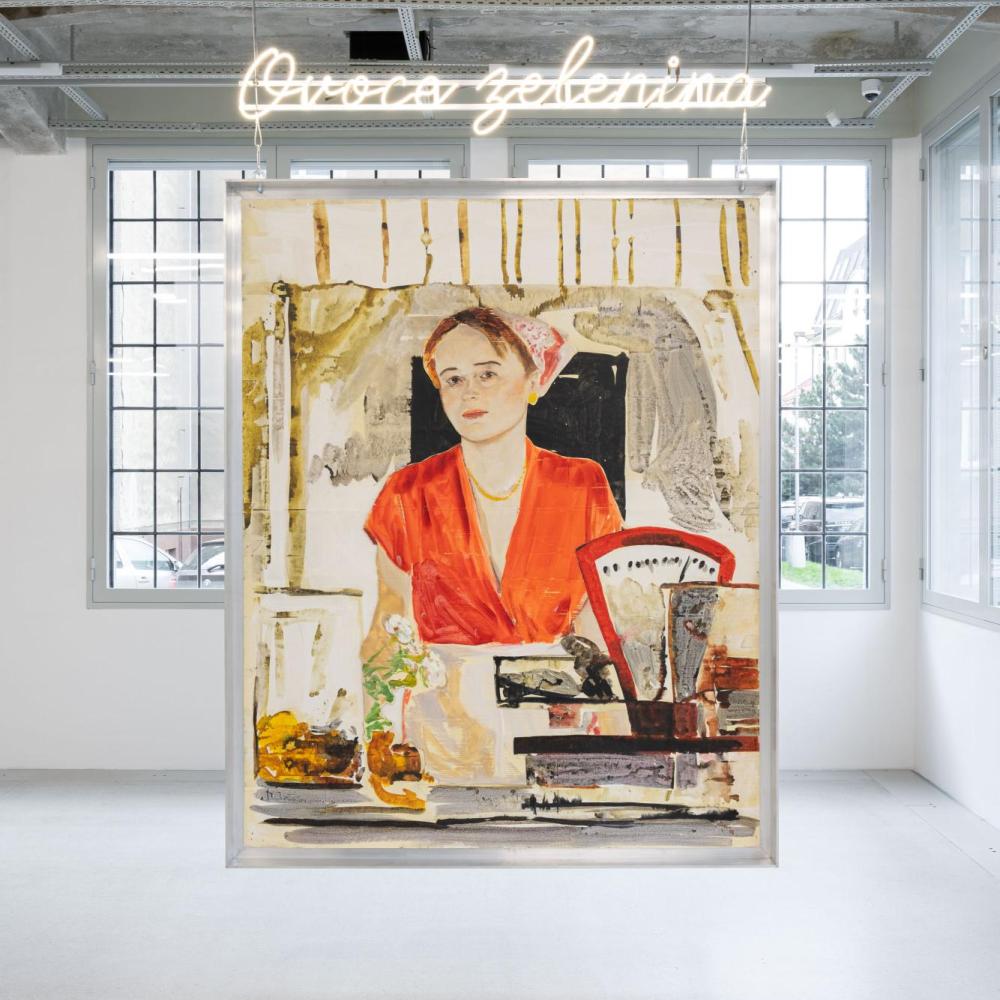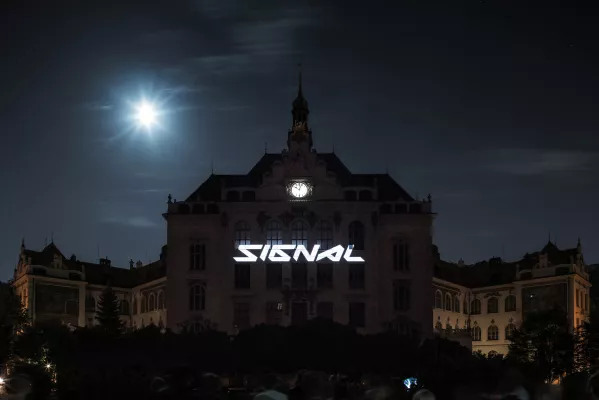
Karolína Kostková currently holds the position of Head of Marketing of Signal Festival, the largest digital art festival in the Czech Republic. She has been working in the field of marketing for several years. Before joining Signal Festival, she worked at Plzeňský Prazdroj, where she was responsible for the communication of the Birell brand on the local market. Among others, she worked for commercial brands such as T-mobile, Snickers, M&Ms, Orbit, Pedigree and Whiskas, as well as for local custom tailoring. As part of her talk at Promotion in the creative industries #5 on Tuesday 13 December at 6pm, she will present what all lies beneath the communication of the biggest cultural event in the country, what is important to pay attention to when setting up communication and what, on the other hand, can emerge as a pleasant bonus.
You spent the first three years of your studies at Brno University of Technology (VUT), what made you move to Zlín?
I consider my study path to be somewhat unconventional. I spent three years in Brno at the Brno University of Technology and earned a Bachelor's degree in Business Economics and Management. Then I chose a master's degree. The logical step for me was to study marketing, which I had already been doing for several years at that time. Zlín is my hometown and I knew that if I was going to study marketing anywhere, it would be at the Faculty of Multimedia Communications at Tomas Bata University in Zlín (UTB). So I enrolled in the Marketing Communications field of study on a distance learning course. With my new job, I couldn't keep up with my studies and after half a year I interrupted them. At that moment I evaluated the situation so that I could do without a master's degree in the field a nd I could make do with a bachelor's degree. A couple of months after I stopped my studies, I was targeted on social media by the Arts Management Studio from the same faculty and I took it as a sign to give my Master's degree another chance. I knew that I wanted to develop professionally in this field and that, unlike marketing, I had a lot of catching up to do. So I am currently finishing the second year of my distance learning Master's degree and by next spring I will (hopefully) be a Master of Arts student.
Your biggest passion is art and design, which will be the focus of your Master's thesis. What topic have you chosen specifically? Are you going to research something groundbreaking?
I have chosen Visual Communication of Art Festivals and Cultural Events as my thesis topic. With any thesis I do for school, the subsequent applicability in practice is important to me. In my thesis I will focus on both Czech and foreign art festivals and cultural events. I'm interested in how they communicate visually, what trends they follow, whether they are consistent or come up with something original every year, what graphic studios deal with this issue and whether there is a formula for all this. I chose this topic primarily for its subsequent applicability in the preparation of the visual identity of the 11th Signal Festival, which we will again implement with graphic designers Jan Broz and Jan Novak. Although the Signal Festival will not take place until the autumn of next year, I would like to have the first draft of the visual already in the spring, so that it can be part of the thesis. It remains to be seen whether we will be able to do it in time.
I was intrigued by your winning project 'Miss a beer today to have a tomorow'. How did you come up with the idea? Given the popularity of beer in the Czech Republic, it could have a really big impact.
It was my first ever experience with the Young Lions competition. We won with this idea in the Marketers category, where the proposal needs to be directed at the communication of the company you are applying under or a selected brand in that company. The client was the non-profit organization Plant-for-the-Planet and the goal of the communications campaign was to plant trees, educate consumers about the issue and at the same time motivate other big players in the market to join in. The goal was to slow the climate crisis and eliminate CO2. We had several insights for the campaign and the main one was that Czechs don't like to contribute to anything, but if they know what it is for and basically don't have to do anything for it, it is much more digestible for them. So we came up with a special "Pilsner Urquell tree multipack" where you as a consumer would buy only 9 bottles of Pilsner Urquell instead of 10. For the purchase of this multipack, Plzeňský Prazdroj would then plant two trees - one for the consumer, one for itself. At the same time, instead of a tenth bottle, the consumer would find seeds in the package so that he or she could plant a tree themselves. Thanks to our calculations from beer sales, we could plant over 3 million trees a year. We then wanted to use the space on the multipack for consumer education. Here, we also wanted to play on the string that if we didn't plant trees, there would be no water in the landscape and without water, there would simply be no beer. So it's about sacrificing beer today so that we can have beer in the future. If our idea comes to fruition one day, I'll be really happy and proud.
Do you think that the participation of major industrial companies in environmental issues can motivate individuals and the public to behave responsibly towards the environment?
I think so. We are still living in an era where the majority of the population watches mass media where advertising space can be financially afforded primarily by these major industrial companies. So we can say that they influence us to a large extent in our behaviour. Communication around the environment is becoming a trend, which I am glad about, because we need trends of this kind. If we get to the stage where the subject is completely normalised, it will be natural for individuals to behave responsibly. We still need to distinguish between which company is just greenwashing and which is actually doing something about it. For large companies this is sometimes a difficult distinction to make, but even talking about the issue can take us far.
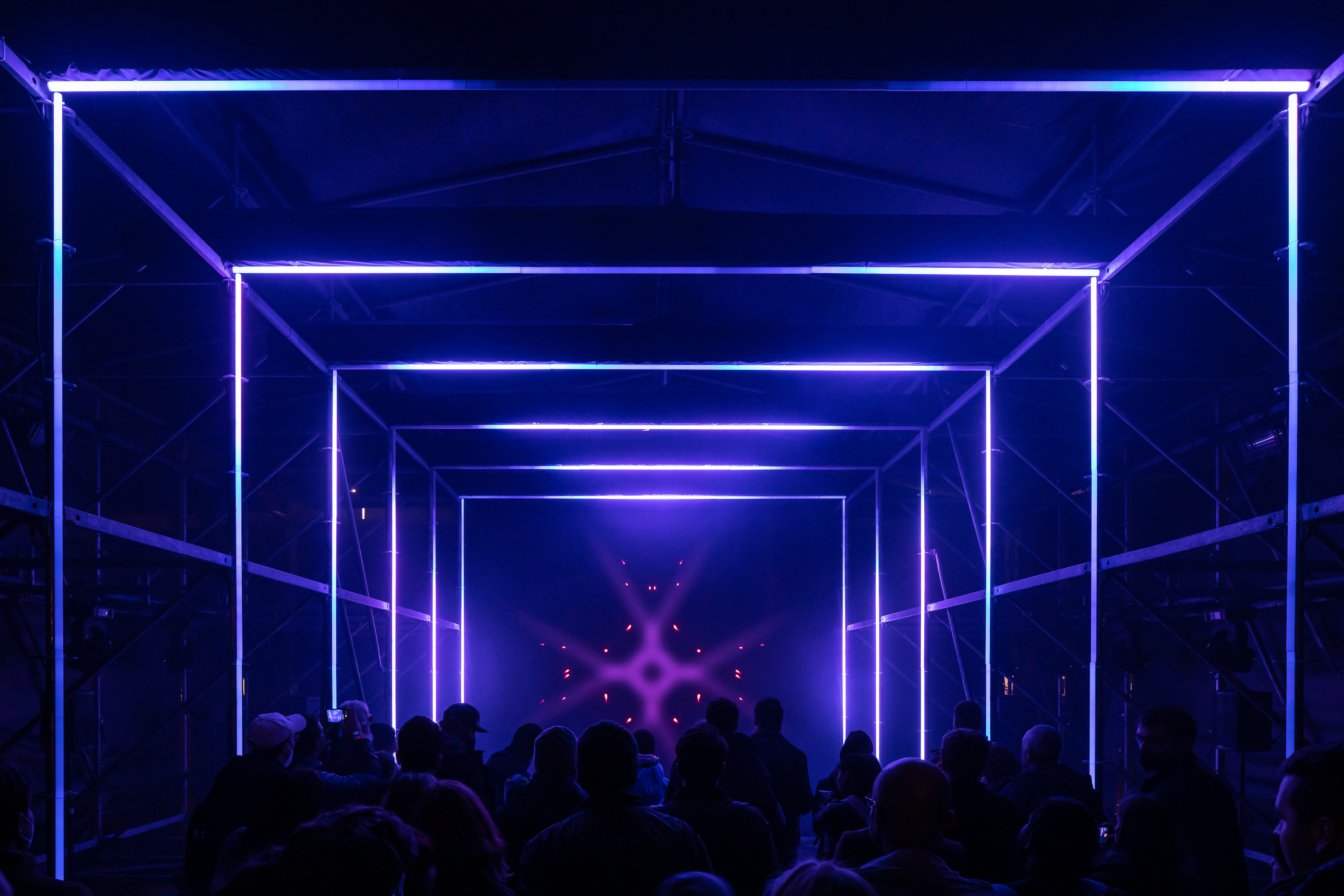
What attracted you to Signal Festival that made you decide to be part of its team?
For a long time I wanted to move from the commercial world into culture. My studies have made me all the more determined to do that. Marketing positions are rare in the cultural sector, which is why I'm extremely happy that Signal Festival has advertised one this spring. There were several things that stood out to me about Signal Festival. One thing is the company culture, which unlike a corporate environment is really relaxed and very natural to me, both internally and externally. What I've also always liked about Signal Festival is that it gets the people of Prague out on the streets and shows them art in a public space in a different light, literally. For a decade now, the festival has shown that it is not an event with shallow dramaturgy, as many people may perceive it, but really a trend-setting event that shows everyone what a festival of light should look like. Not many events can boast that they have over half a million visitors in four days, and I think that's what's unique about it.
What was the journey to your current role as Head of Marketing and Communication for Signal Festival?
I first encountered marketing in my very first marketing position at SALONč4, a bespoke tailor shop in Brno. At that time I wanted to focus on fashion, I didn't give in to art until a bit later. This opportunity was great for me in many ways and I really found myself in it, however I felt that in terms of marketing knowledge it was more trial and error than any strategic guidance. So I decided to look for positions, in larger companies, where I could learn more about marketing strategy. Logically, I reached for a big company and joined Plzeňský Prazdroj, the current market leader in beer. I spent almost three years at Prazdroj, during which I worked on the communication of the Birell brand. I was in charge of event strategy, digital and PR communication of the brand or, for example, preparing innovations for the Czech and Slovak markets. For a few months I also had the opportunity to work at the renowned creative agency Ogilvy Czech, where I was in charge of social media communications for T-Mobile and the entire Mars brand region. During both of these jobs I participated in the Young Lions marketing competition and won two medals. I knew from the start that I wanted to focus on the cultural or creative sector in the future, and I took my Young Lions placement as an important milestone to start focusing on what I enjoy, which is arts and culture. So the position of Head of Marketing at Signal Festival came up like a shot in the dark and I decided to give it a go and it worked out.
What is your normal working day like as Head of Marketing and Communications outside of the direct festival hours?
This is a fairly common question. It's true that most of the work on communication and preparation is 3 months before the festival itself, when our communication campaign also starts. However, there is a lot of work during the year as well. At the moment we are already working out what theme, concept and artists to choose or approach for next year. This is also related to the open calls we hold every year and we are currently setting up what the next one will look like. We are still evaluating this year's edition and since we have a lot of commercial and media partners, this particular reporting takes a lot of time. I would like to keep the communication of the festival year-round, so we are currently working with our programming department to figure out what our audiences might be interested in and how to get it right. Media partnerships are also an important part of my job and need to be maintained and ideally developed.
What makes Signal Festival special compared to other festivals focused on video mapping and light installations, besides the fact that it takes place in Prague? Or do you think Prague is the main criterion?
Signal Festival has a unique position especially in the international context. The dramaturgy itself is quite exceptional compared to what light festivals look like abroad. Signal Festival works much more with contemporary artists, supports art school students and collaborates with various galleries and institutions. I think the connection to Prague is key in many ways. As our visitors often write in their feedback, for many of them it is the tradition that the festival represents for them. Often we are showing the people of Prague places that they have not known or visited before. A few years ago, we gave Signal Festival the subtitle of a festival of digital and creative culture because the context of the festival of light goes well beyond that. Part of what makes the festival special, in my opinion, is how many people visit and how big its reach is. Few cultural events can boast this, it should be noted that our media partners are to thank for this and we are very grateful to have them and to have them help us create the festival.
This year's festival was the tenth anniversary edition. Did you make any significant changes from previous years? And what kind of feedback did you get?
This year's edition was in the spirit of celebration, and since celebration should ideally be done in a group, we took the help of several cultural institutions. We have already had several collaborations with the creative workshop PrusaLab, and we have also established new collaborations, namely with the Centre for Architecture and Urban Planning (CAMP), Kunsthalle Praha, the Faculty of Electrical Engineering (FEL) of the Czech Technical University, the National Theatre and the Vzlet Cultural Crossroads. We presented the new media artist Refik Anadol at CAMP in cooperation with the Institute of Planning and Development of the Capital City of Prague. Prague, the digital artist Ondřej Zunka at Kunsthalle Praha, the interactive installation Forum Robotum in collaboration with FEL CTU and the theatre production of the multimedia theatre Laterna magika, thus once again pushing the bar for art in public space. The dramaturgy was the best ever during the whole festival. For the very first time, we headed to the Vršovice district and as a gift for the audience we prepared the popular video mapping on the Basilica of St. Ludmila on Náměstí Míru and brought back the popular Cloud installation. The response was really great, the fact that it was the second year after the covid, when everything could work to its full potential, and the great weather, which played into our hands all 4 days, played a big role.
There's one big issue moving the world today, and that's the energy crisis - providing a festival like this is certainly not going to be a low-energy affair. How do you cope with that? And doesn't the festival create resentment in the eyes of environmental activists?
I was kind of expecting this question and it seems quite logical. Signal Festival has been trying to minimize the environmental impact of the event for a long time. We use low-consumption resources, limit the creation of printed programs and promotional items. We are always looking for ways to improve. We try to encourage visitors to walk to the event, we handle the production of foreign works locally and we select eco-friendly materials that can be recycled further. Interestingly, Signal Festival is not energy intensive as many people think. Electricity consumption in 2021 was about 10,000 kWh, which is equivalent to about 42,000 CZK or the average annual consumption of about three households. At the same time, we partially turn off the lamps around the festival to make the works stand out more. The total consumption is thus very well compensated. At the same time, we are focusing with our energy partners specifically on the sustainability of the installations. We have encountered some negative feedback on social media during the festival, but we always try to patiently explain that Signal Festival is not as energy intensive compared to other festivals, such as music festivals.
Can we expect any other projects that you will be a part of in the near or distant future?
My biggest project at the moment is the successful completion of my Master's degree, which is due next spring. Since I like to set multiple goals at once, I would like to enter the Young Lions competition again in the spring and finally make it to Cannes for the world round. I'm not planning any other projects yet, but I'm open to new possibilities and I'm really looking forward to what the Signal Festival will bring next year.
